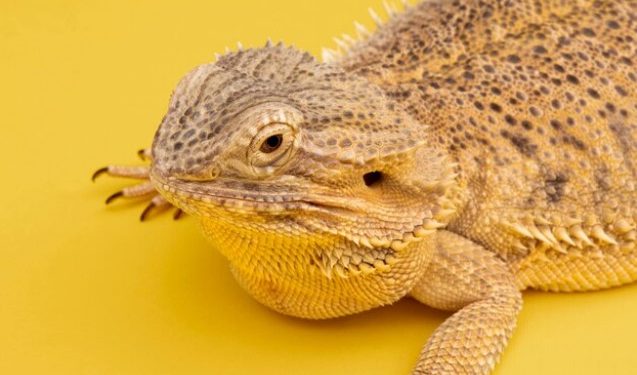A balanced diet is vital to everyone and dragons are no exception, it’s often asked whether “Can bearded dragons eat cucumbers” as part of their balanced diet, well we will learn that today. Reptiles with intriguing appearances and a kind disposition are bearded dragons. It is important to know these cherished pets’ nutritional requirements to maintain their health and well-being. We’ll go over the ideal diet for bearded dragons in this in-depth guide, including which items are safe to consume and which are best avoided.
Understanding a Bearded Dragon’s Diet:
Being omnivores, bearded dragons consume both plant and animal materials. They will get the vitamins, minerals, and nutrients they need for healthy growth and development if their food is well-balanced.
The Importance of Variety: Preventing Dietary Monotony
Providing a wide variety of meals is essential for your dragon’s general health, not only to make mealtimes exciting. “Can bearded dragons eat strawberries” and It’s important to introduce a variety of veggies, greens, and protein sources to make sure they get a full range of nutrients. Food rotation also helps avoid nutritional deficits that might result from serving the same things over and over again. To keep your dragon healthy, content, and interested during meal times, embrace variation.
Vegetables and Greens:
· Must-Have Greens: A bearded dragon’s diet must consist mostly of dark, leafy greens. Serve a variety of greens, such as kale, mustard, dandelion, and collard greens.
· Vegetables: To offer variety and vital nutrients, use veggies like green beans, bell peppers, squash, and carrots.
Fruits:
· Treats Occasionally: Fruits are a favorite food of bearded dragons, but because of their high sugar content, they should only be fed occasionally. As occasional treats, provide fruits like melons, berries, papayas, and mangoes.
Protein Sources:
· Insects: A bearded dragon’s diet of live insects is essential for proper protein intake. Black soldier fly larvae, mealworms, dubia roaches, and crickets are also great options.
· Meat: While prepared lean meats like turkey or chicken can be served as occasional treats, they shouldn’t be the main source of protein.
Supplements:
· Calcium and Vitamin D3: To avoid metabolic bone disease, dust insects with a calcium powder supplemented with vitamin D3. Make sure you get enough UVB sun exposure for the creation of vitamin D3.
Hydration:
· Water Bowl: Ensure that there is always a shallow dish of clean water available, however, be advised that bearded dragons may not consistently drink from it. Their diet supplies most of their hydration.
Foods to Avoid:
Even though a diverse diet is important, some foods can be detrimental to bearded dragons:
1. Wild-caught insects: They may be infected with parasites or insecticides.
2. Foods High in Oxygen: Rhubarb and spinach can bind calcium, causing inadequacies.
3. Foods That Can Be poisonous: Reptiles should not eat avocado, onions, or garlic as they can be poisonous to them.
Gut Loading Insects: Maximizing Nutritional Value
The insects that bearded dragons eat are a vital component of their diet. Feeding wholesome meals to insects before presenting them to your dragon is known as gut loading. This procedure greatly increases the nutritional value of the insects, which benefits your pet. Choose to fill your stomach with lots of greens, carrots, and other nutrient-dense vegetables. This guarantees that every bug your dragon eats will be a nutrient-rich diet.
Seasonal Variations: Adapting Diet Throughout the Year
Bearded dragons may have different appetites depending on the season, just like humans. They may exhibit greater energy and a larger appetite in the warmer months. Make the necessary dietary adjustments, providing a little extra food to meet their increased energy needs. On the other hand, throughout the winter they may eat less and move less. A balanced diet may be maintained all year round by keeping an eye on their consumption and adjusting quantities to correspond with their level of activity.
Understanding Signs of Nutritional Deficiency
The health of your bearded dragon must recognize symptoms of dietary deficiencies. Lethargy, tremors, stunted development, or problems shedding are common symptoms. Walking difficulties or bone abnormalities are two signs of calcium deficiency. A vitamin A deficit may result in skin or eye problems. Contact a reptile veterinarian right away to treat and correct any food imbalances if you observe any worrisome signs.
FAQs
Can Bearded Dragons Eat Insects Caught Outdoors?
Feeding your bearded dragon insects that you catch outside is not a good idea. Wild insects may have illnesses, parasites, or chemicals that might be harmful to your pet. To be sure they’re secure and devoid of any risks, choose insects that have been professionally grown or those that come from reliable sources.
How Often Should I Offer Calcium Supplements?
To maintain healthy bones, a bearded dragon has to take calcium supplements. To make sure insects get enough calcium for healthy growth, gently dust them with calcium powder throughout the majority of their juvenile feedings. Give calcium supplements to adults a few times a week to keep their bones strong and avoid deficiency.
What if My Bearded Dragon Refuses to Eat Greens or Vegetables?
Certain bearded dragons may have particular dietary preferences, particularly with vegetables and greens. To change the texture, experiment with different presenting techniques including chopping, shredding, or mixing. To promote acceptance, try a variety of greens or occasionally combine them with fruits. The secret is to be persistent and patient; most dragons will ultimately grow to enjoy their greens.
Conclusion
To maintain the health and lifespan of your bearded dragon, it is essential to understand their nutritional requirements. The foundation of their health is a well-balanced diet that includes fruits, vegetables, grains, and suitable protein sources that are well-hydrated and fortified with calcium. You may feed your scaly companion a diet that promotes their robust existence by keeping an eye on their consumption, adjusting for seasonal differences, identifying any symptoms of inadequacies, embracing nutritional diversity, and answering frequently asked questions.















